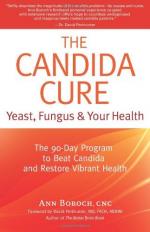|
This section contains 977 words (approx. 4 pages at 300 words per page) |

|
Yeast are single-celled eukaryotic organisms related to fungi. The baker's yeast Saccahromyces cerevisiae and the distantly related Schizosaccharomyces pombe are favored model organisms for genetic research. The interest in yeast research stems from the fact that, as eukaryotic organisms, the sub-cellular organization of yeast is similar to that of cells of more complex organisms. Thus, understanding how a particular gene functions in yeast frequently correlates to how similar genes function in mammals, including humans.
Yeast Genetics
Yeast have many advantages as a genetic research tool. First, yeast are nonpathogenic (they do not cause diseases) and are therefore easy and safe to grow. Yeast can divide by simple fission (mitosis) or by budding and, like bacteria, they can be rapidly grown on solid agar plates or in liquid media. After just a few days in culture, a single yeast cell can produce millions of identical copies of itself, giving...
|
This section contains 977 words (approx. 4 pages at 300 words per page) |

|


